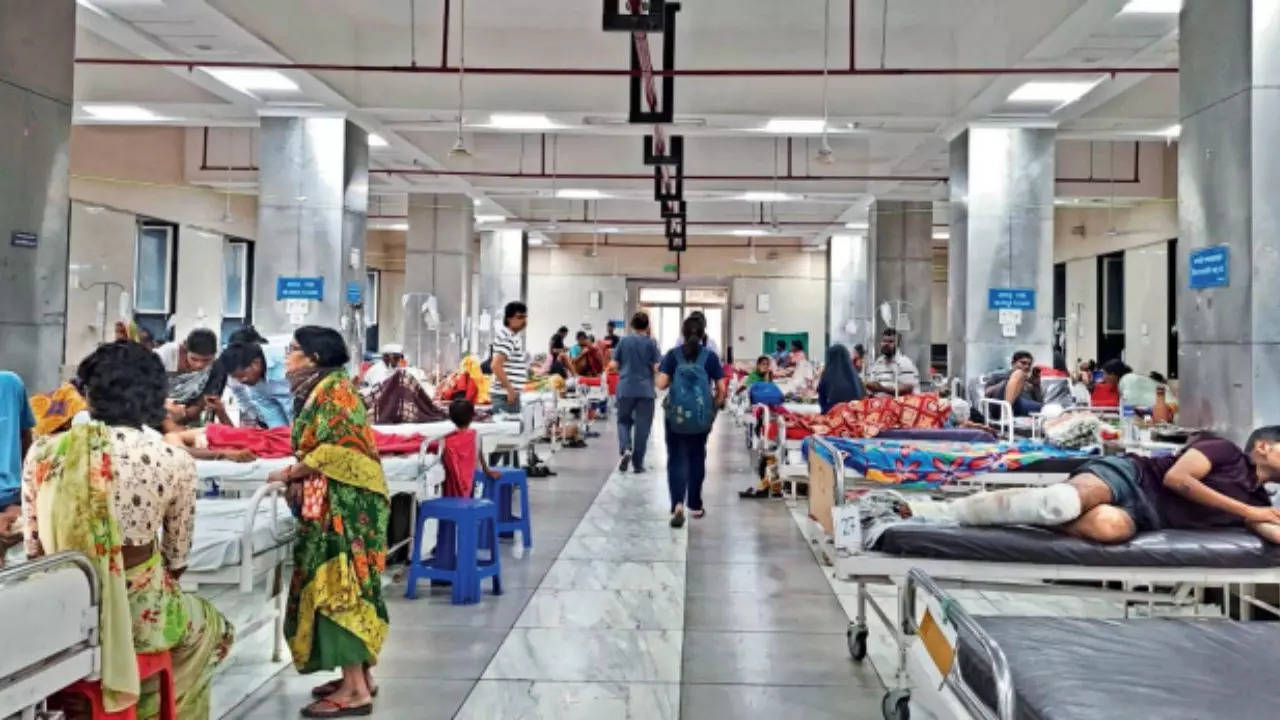The Maharashtra Transfer Act allows employees to serve only three years at a workplace unless exceptions apply. However, numerous staff at Pune's BJ Medical College and Sassoon General Hospital have not adhered to this mandate, with some staying for more than a decade. PUNE: The state’s 2005 legislation governing transfers stipulates that an employee cannot continue at a workplace for more than three years, except where govt allows them a longer time on ‘humanitarian’ grounds.
The objective, experts say, is to regulate transfers of govt servants, prevent delays in discharge of duties, and avoid monopoly. However, those working with BJ Medical College and Sassoon General Hospital (BJMC and SGH), the city’s prestigious tertiary care facility, seem to have escaped the law’s ambit. An RTI response filed by TOI reveals there are many Classes I, II, and III employees who have clung to their positions for more than 10 years and in some cases, 25 years.

This blatant violation of the Maharashtra Govt Servants Regulations of Transfers and Prevention of Delay in Discharge of Official Duties Act, more commonly known as the ‘Transfer Act’, could not have been better highlighted than at a time when the hospital is battling bad publicity and a barrage of criticism on account of the Porsche Taycan crash case . All those involved in swapping the teenage driver’s blood sample with that of his mother’s — head of forensic sciences department Dr Ajay Taware, casualty medical officer Dr Shrihari Halnor and mortuary staffer Atul Ghatkamble, all three now suspended — had, a long time ago, exceeded their mandatory three-year tenure. Dilip Mhaisekar , former director, Directorate of Medical Education and Research ( DMER ), said it is true that if employees are not regularly transferred, it may lead to a monopoly within the organisation and there is a govt resolution (GR) in this regard as well.
“It is the dean’s responsibility to send a proposal for transfers every year to the DMER, which in turn will forward it to state govt. Even if a person has an exceptional work record, it is still govt that takes the final call,” Mhaisekar said. The Act dictates that ‘the competent authority shall prepare, every year in Jan, a list of government seants due for transfer in April and May.
’ “When I took charge as dean in June 2024, I was told that my predecessor had sent the recommendation list for transfers at the end of the financial year 2023-24. However, I am not aware of what happened to it,” Dr Eknath Pawar, current dean, said and added that he would send a revised proposal in Jan 2025. Pawar, however, said there were cases where doctors were allowed to continue beyond the prescribed period only because they had earned a reputation for their cordial approach and known their patients’ requirements, and new appointees would need time for this task.
RTI data shows 65 Class I employees, 33 Class II employees, 170 Class III employees and 532 nurses have been with the hospital for more than three years. They include professors, associate professors, assistant profes sors, senior and junior clerks, pharmacists, technicians, telephone operators, office superintendents, X-ray and CT scan operators. Despite the rule, the process is not easy as many challenge their transfers in the Maharashtra Administrative Tribunal (MAT).
Dinesh Waghmare, principal secretary, medical education and drugs department, said, “Last year, we issued extensive administrative transfer orders, but then most of the professors and faculty members approached the MAT and got a stay. Ulti mately, to run the department, we had to cancel many orders.” Asked how orders issued as per the GR were challenged in the MAT, he said, “It gives orders on certain grounds such as spousal rights or some serious illnesses.
But it is on a case-tocase basis.” Employees’ unions can also influence administrative decisions . “It is important to know that females dominate the nurses’ community and when a woman is forced to leave her house, her entire family is affected,” said Rekha Tithe, president, Maharashtra Govt Nurses Association , Pune district.
She further said there are no other medical education colleges in Pune and so if a nurse gets transferred, then she will have to be sent out of the district. “This is not acceptable to us. On humanitarian grounds, we oppose any move by govt to transfer nurses.
” Dr Ajay Chandanwale, who took charge as the DMER director, in July, said, “We have directed all the medical colleges, including Sassoon General Hospital, to send us their recommendations.” The DMER, Mhaisekar said, has no power to transfer Classes I and II employees, who are teaching staff in the medical college. “Right to transfer Class III employees, however, lies with the DMER and every employee must agree to it if they wish to work in govt.
I too was transferred from Nanded to Mumbai,” he said. Only Class IV employees do not come under the Act’s purview, and they can only be transferred if they are found in violation or if there is a complaint against them, Mhaisekar added..



















